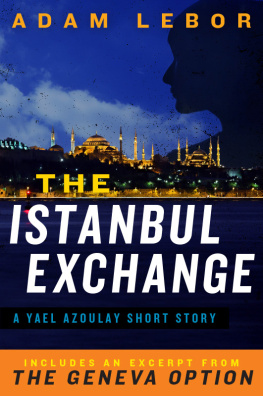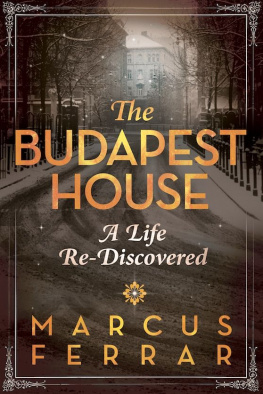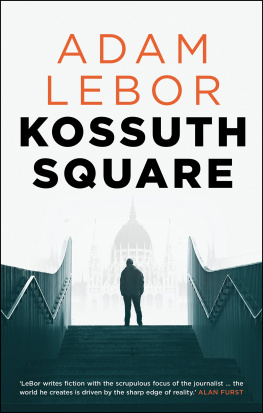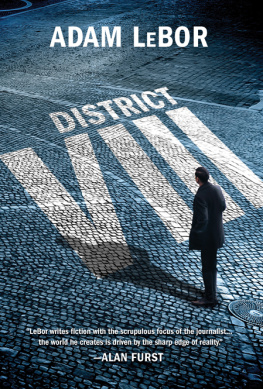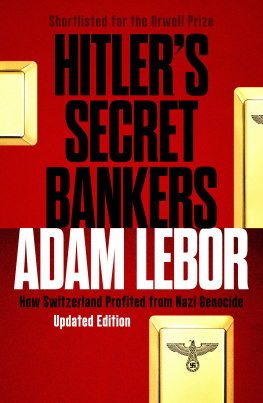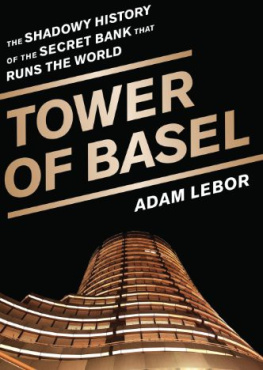by Adam LeBor
The dead man floated face-down in the sea, his naked body cradled by the waves.
Yael Azoulay waited on the Eminn waterfront as the tide slowly carried him towards the shore. It was a perfect spring day in Istanbul. The morning sun was warm on her face, the Bosporus shimmered silver under an azure sky, the breeze was cool and pleasant, scented with coffee and cardamom. Two elderly fishermen stood nearby, resting their rods against the metal railing, watching their lines, smoking and chatting companionably. The barrier marked the edge of a continentEminn was the last outpost of Europe; across the water lay the suburb of skdar, Turkey's gateway to Asia.
A white dinghy appeared, engines roaring as it bounced across the sea, its red and white Turkish flag flapping in the wind. The V-shaped hull cut through the water like a scythe at harvest time, pale spray fountaining in its wake. The engines slowed and the dinghy banked leftwards; for a second it seemed suspended in mid-air and about to tip over, but then righted itself. The dinghy stopped by the dead man, rocking gently in the current. A short, tubby policeman stood up at the back, shouting orders to two young subordinates. The policemen's voices carried clearly across the water.
Yael held her smartphone out in front of her. The dinghy appeared on the small screen. She moved the zoom slider to its maximum distance and pressed a button on the right-hand edge to start recording. The camera had been specially modified: the zoom magnified by a factor of six, with diamond-sharp resolution, and its high-definition video camera shot 90 frames per second. Additional software and an encrypted Bluetooth connection allowed her to surreptitiously download content from other handsets up to ten meters away. Yael could read Deniz PolisiMaritime Policeemblazoned on the side of the boat, the edge of the letters faded from the water. One of the young policemen, tall, ungainly, barely out of his teens, wielded a long pole with a loop on the end. He stood at the back of the dinghy, rocking back and forth, trying to catch the dead man's leg. His uniform trousers were too short and flapped above his shoes. Each time the loop neared the dead man's leg, the waves carried him away.
A passenger ferry chugged across the bay to skdar. The passengers were standing along the edge, pointing at the police's efforts and talking excitedly. The ferry's wake rocked against the hull of the police dinghy, tipping it dangerously from side to side. The short officer lurched sideways and almost fell overboard, but was grabbed just in time by his colleagues. Eventually, the young policeman succeeded in hooking the loop around the dead man's leg. He pulled the corpse towards the boat. The ferry passed within a few yards. The passengers fell silent as they realized the long, pale shape in the water was a dead body.
Yael watched on her smartphone as the policemen pulled the dead man over the rounded edge of the dinghy into the small passenger space. The screen showed the three policemen grimacing at what they saw. She tapped to focus in on the dead man's back. It was a map of pain, crisscrossed by deep welts, their ruffled edges bleached white by the water. The dead man's arms and shoulders were dotted with semicircular rows of tiny puncture marks, each two or three inches long. The police commander shook his head in disgust. He covered the body with a grey blanket, gently smoothing the fabric over the corpse as though tucking a child into bed.
The police dinghy turned towards the shore and slowly made its way towards land, granting the dead man at least a final, dignified, passage. Yael closed her phone. An ambulance arrived, its siren howling. The paramedics stepped out, wheeling a shiny aluminum stretcher forward, shouting and clearing a path through the crowd that had gathered to watch the commotion.
Yael turned to see the American appear at her side.
We offered him a deal, he said.
Which was?
Better than that, the American replied, gesturing at the police launch. The paramedics stepped through a gap in the railings and boarded the boat.
An orange jumpsuit? asked Yael.
The American laughed. Any color he wanted.
The American's name, she had been told, was Cyrus Jones. But that didn't mean anything. Whoever this Cyrus Jones was, he stood completely at ease. His face was broad and pale, dotted with freckles, his hair and eyebrows dark blond, his lips thin. The lines around his eyes creased deep when he smiled, and she guessed he was in his late-thirties.

